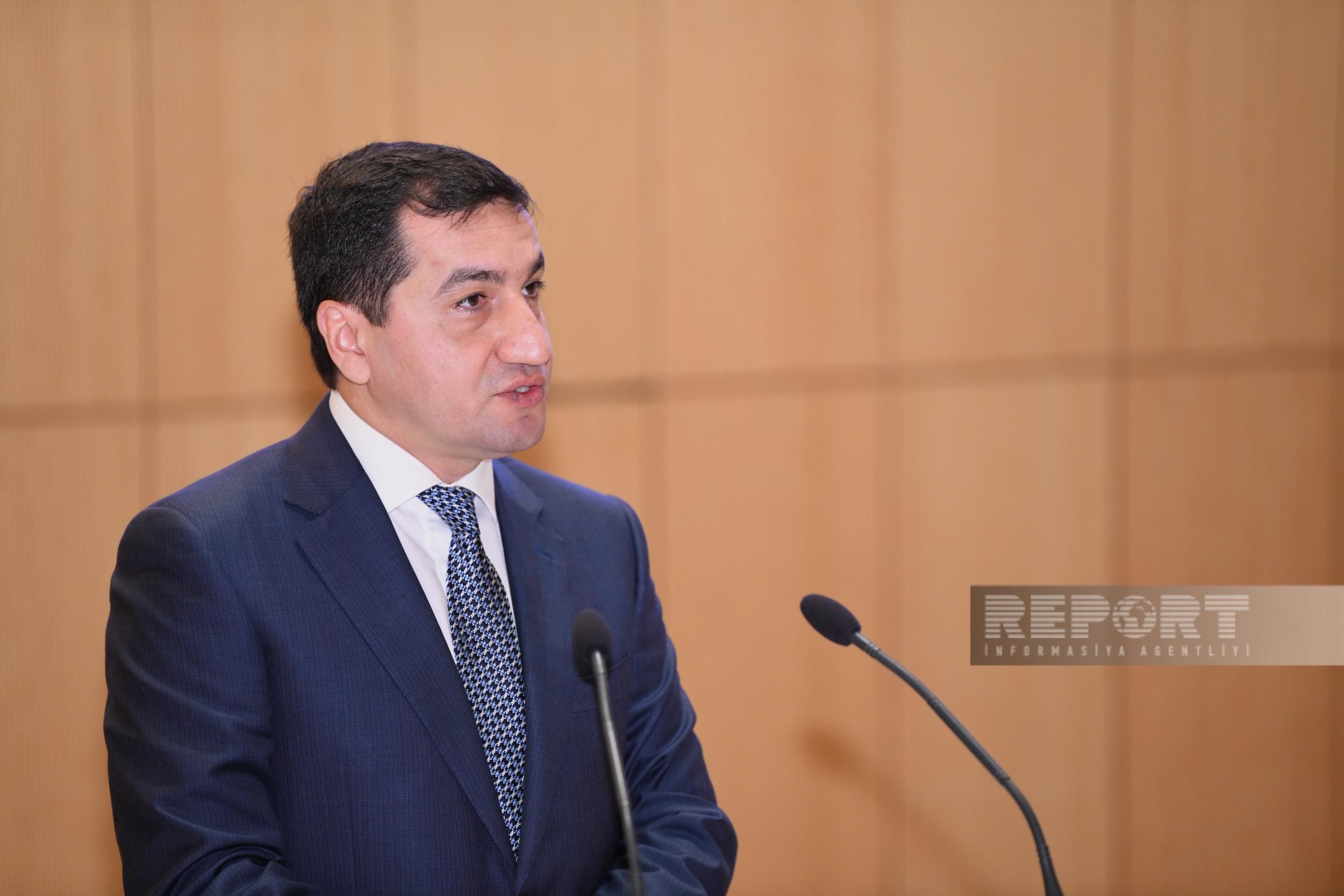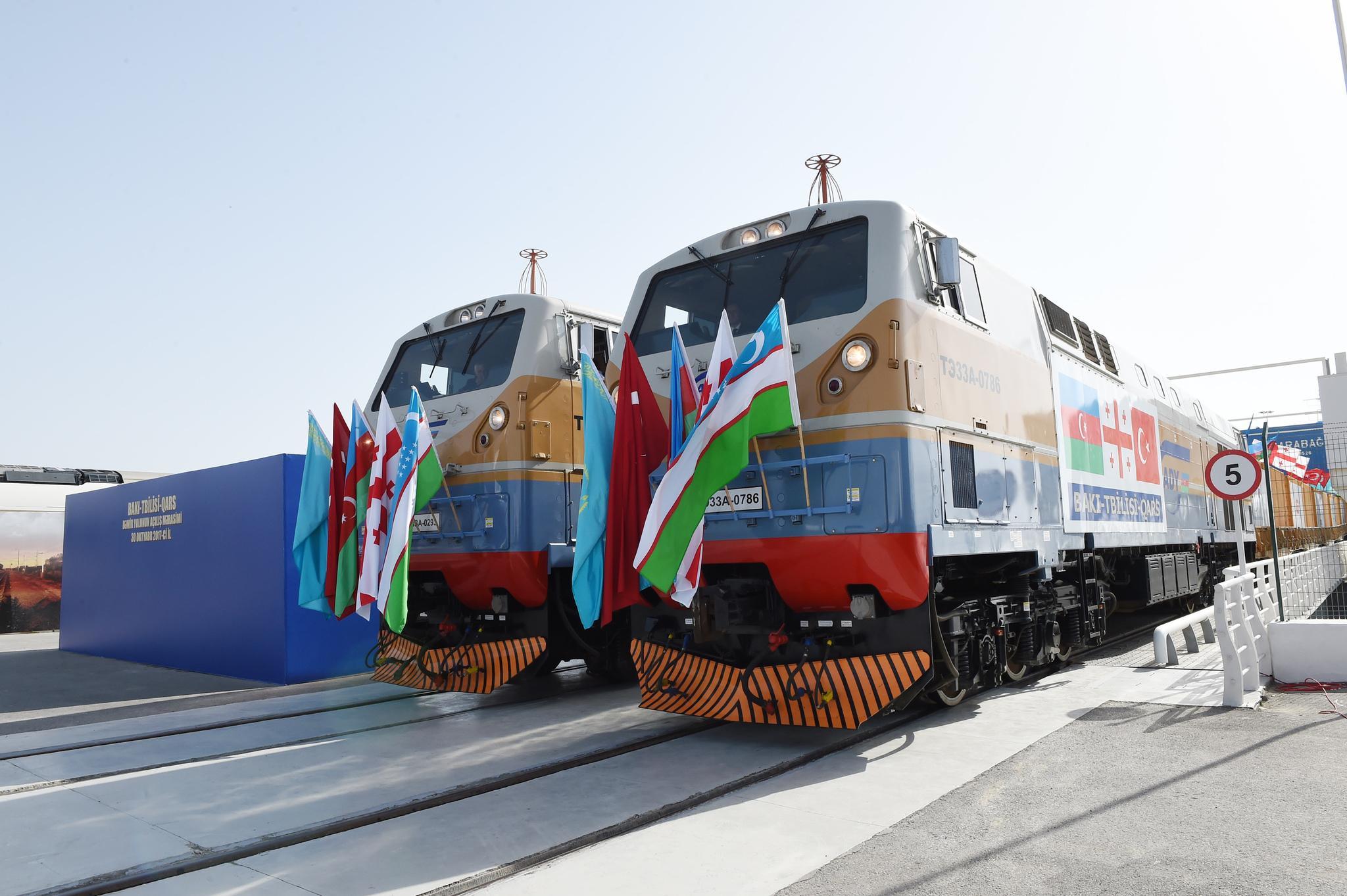Middle Corridor - alternative to Suez Canal Realities and prospects
Report features an article highlighting the importance of the Middle Corridor. Caliber.Az reprints the article.
Geopolitical changes of the last two years have dramatically increased the importance of the Middle Corridor (Trans-Caspian International Transport Corridor), which runs through Central Asia and connects China with Europe.
First, the Russian-Ukrainian conflict, and since late last year the Houthi attack on ships in the Red Sea, are affecting global trade routes. Ultimately, it all comes down to increased costs: transport, security and communications. Transport corridors from Asia, mainly from China, to Europe and supply chains for products consumed by Europeans have been disrupted, leading to a significant increase in final costs.
Whereas, as Assistant to the President of Azerbaijan - Head of the Foreign Policy Affairs Department of the Presidential Administration Hikmat Hajiyev emphasized at the Antalya Diplomacy Forum, the annual trade turnover between China and the EU through the Caucasus territory exceeds $700 billion.
“Currently, the northern corridor is practically paralyzed for known reasons, which increases the importance of the Caucasus region, which is the center between these two trading partners. Thus, the South Caucasus and the Middle Corridor can provide broad strategic connectivity, which is the intention of the Azerbaijani side. We see additional emphasis on the potential of the region to ensure cargo transportation from China to Europe,” said Hajiyev.

By the way, within the recently held 5th Balkan and Black Sea Forum, both China and the European Union expressed a common interest in the development of the Middle Corridor - to solve geopolitical problems and improve the security of supply chains.
European and international financial institutions have expressed their readiness to allocate 10 billion euros for the development of transport links in the Central Asian region, primarily the Trans-Caspian International Transport Corridor.
As is known, since the beginning of the Houthi attacks on ships in the Red Sea, the volume of cargo transportation through the Suez Canal has decreased by 55 per cent. The International Maritime Organization (IMO) estimates that the Suez Canal has lost about two-thirds of its cargo due to tensions in the Red Sea, and that cargo is now being routed through southern Africa. A number of shipping companies have decided to completely suspend transportation through the Red Sea.
Against the background of this conflict, cargo carriers are choosing a longer roundabout route through the Cape of Good Hope, while at the same time in the EU, China, and the countries of Southeast Asia they are increasingly turning their attention to the Middle Corridor passing through the territory of the states of Central Asia and the South Caucasus - it is considered as optimal entry into the market of Türkiye, the Middle East and Europe in terms of time and safety.
Over the past years, Azerbaijan has been actively working to expand the capacity of the combined sea and railway component of the Middle Corridor, which also includes the transshipment of goods through the Baku-Tbilisi-Kars (BTK) railway and the Baku port.
As Hajiyev emphasized, Azerbaijan is investing in increasing the throughput capacity of the Baku port of Alyat to 25 million tons per year.
“Azerbaijan recently began making additional investments jointly with Georgia to increase the capacity of the Georgian segment of the BTK. We also agreed with our Turkish colleagues on laying a railway from Kars to Nakhchivan,” said the presidential aide.
The 230-kilometer-long line will start from Kars-Igdir and continue to Nakhchivan. From there the line will be connected to a railway line leading to Iran, Afghanistan and Pakistan. Thus, Türkiye will have a great advantage in logistics.
As for the work on the Georgian segment of the BTK, it is planned to be completed within two months. Today, a trilateral meeting of the heads of the railway administrations of Azerbaijan, Türkiye and Georgia is being held in Georgia, where the progress of implementation and acceleration of these works are discussed. This will significantly reduce the time of cargo transportation between Asia and Europe, which is a necessary condition for attracting additional cargo flows. At the initial stage, after modernization, the volume of cargo transportation through the BTK is expected at 5 million tons per year.

Through BTK, cargo can be delivered from Beijing (China) to London (UK) in 12-15 days, while cargo transportation from Europe to Asia by sea via Africa takes 45-62 days, and delivery of goods from China to Europe via Russia - 32 days.
In particular, transshipment of non-oil cargo, including container cargo, by trains and trucks along the Middle Corridor routes takes on average about 20–25 days, which is significantly less than transshipment of cargo from China and Southeast Asia by sea, rounding the Cape of Good Hope in southern Africa, which takes on average at least one and a half months. Delivery of goods via traditional routes between East and West and in the opposite direction takes 53 days (if transshipped through the Suez Canal).
What is clear is that, given the ongoing Russian-Ukrainian war, which has interrupted all logistics routes between the Russian Federation and the West, as well as the current escalation of conflicts in the Middle East, which has resulted in a virtual stop of normal shipping in the Red Sea and the Suez Canal, the role of the Middle Corridor as a safe route will only grow.
This is also supported by forecasts: by 2025, the volume of transportation along the Middle Corridor will reach 10 million tons of cargo per year. In 2023, 2.75 million tons of cargo were transported along this route, which is 64 per cent more than in 2022.








